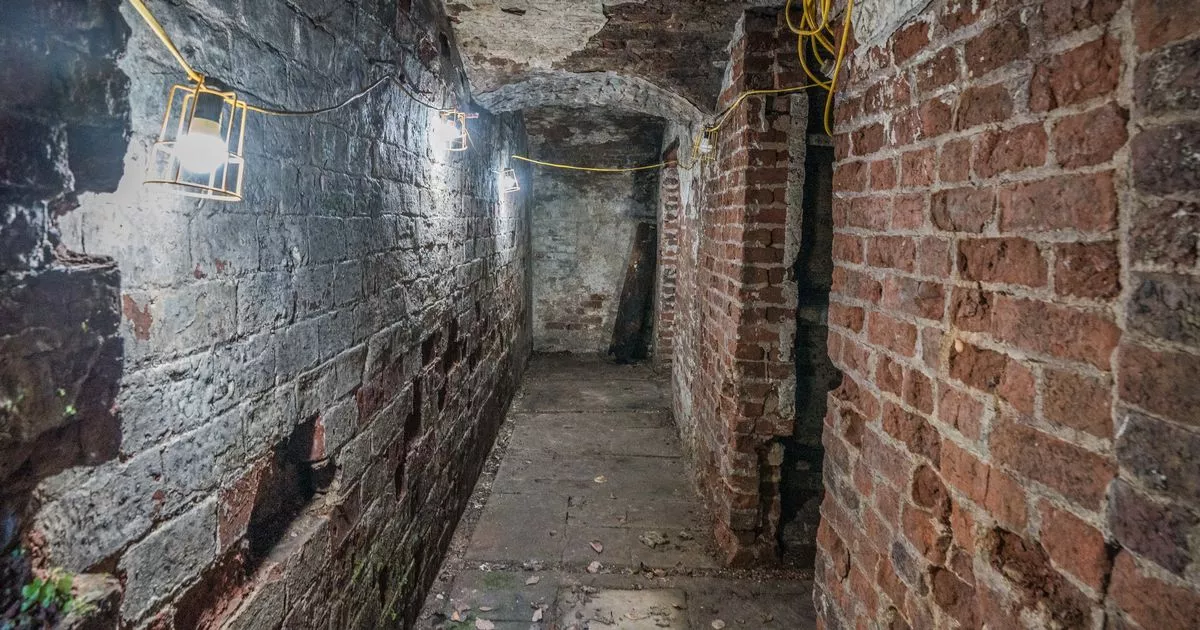By Owen Hughes
Copyright dailypost

The site of one of the great lost halls of Wales has few traces of its former grandeur. Downing Hall was built in 1627 by the influential Pennant family – one of the country’s wealthiest and most influential dynasties.
As it passed down the generations, each added to the Flintshire property – including a grand stable block, walled garden and library wing.
It later became a sporting retreat but was placed up for sale in 1920. Two years later it was damaged in a serious fire and the property in Whitford was never rebuilt.
Most of the property was demolished in the 1950s. All that was left was “a labyrinth of cellars, a Georgian plunge pool, and Downing Dell Well”.
Now the site could get a new owner to put their own mark on this slice of Welsh heritage.
It is on the market for £750,000 – which includes 8.5 acres of private woodland and a lake.
Estate agent Signature Property Partners said: “A rare opportunity to acquire the site of the former Downing Hall, set within 8.5 acres of ancient woodland near Whitford, Flintshire. Steeped in history and surrounded by natural beauty, the site offers a wide range of potential for residential or commercial use (subject to planning permission).”
They added: “Downing Hall was built in 1627 by the influential Pennant family and was the birthplace of celebrated naturalist Thomas Pennant. The hall was visited by notable figures including Joseph Banks, famed botanist and collector.
“Though the hall itself was tragically lost to fire in 1922 and demolished in 1953, the site retains historic features that provide a glimpse into its past grandeur, including a labyrinth of cellars, a Georgian plunge pool, and Downing Dell Well.
“The estate includes a private lake and an attractive meadow, providing an ideal setting for a range of ventures. An established borehole, drawn from carboniferous sandstone, was previously licensed to abstract 43.8 million litres of water per year, offering potential for a commercial spring water bottling business.”
They said other possibilities include:
Erecting a bespoke family home, potentially incorporating eco-friendly design and recycling the original stone from the ruins. Developing the grounds into a glamping or wellness retreat, capitalising on the site’s woodland, lake, and tranquil surroundings. Creating a commercial fishing lake with overnight accommodation, stocking the waters with Brown Trout (subject to planning consent).
They concluded: “This is a once-in-a-lifetime opportunity to acquire a property with heritage, character, and unrivalled potential, suitable for a range of visionary projects.”